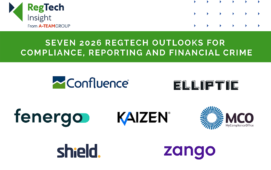Firms need to take action this year if they want to influence the evolving European regulatory process and provide feedback on the impacts of regulation on areas such as data management and risk management, according to Irving Henry, policy director for prudential capital and risk at the British Bankers’ Association (BBA). Speaking at last week’s JWG event in London on the subject of upcoming risk data changes on the radar, Henry noted that the fourth Capital Requirements Directive (CRD4) is likely to contain requirements for firms to provide raw data directly to the European Systemic Risk Board (ESRB) and the European Central Bank (ECB), as well as their national regulators.
The BBA is eagerly awaiting the release of CRD4, which is due to be published in the summer and could potentially contain some big asks of risk and data management systems in terms of providing data on demand to numerous regulatory bodies. Henry indicated that a number of drafts and proposals have been circulated, some of which ask for the reporting of detailed and granular supporting data around risk calculations. This will be a big jump from current requirements and is merely a precursor to Basel III, which is also focused on establishing a solid audit trail for data quality.
Henry sounded a call to action for financial institutions to engage with regulators via industry associations such as the BBA and provide vital feedback on the challenges ahead. “The industry needs to work together to provide guidance to the regulators about issues such as data standardisation and ensure they are going down the right track. If it is left up entirely to the discretion of the regulatory community, we may end up with a whole host of unintended consequences,” he warned.
The industry only has until the end of this year to significantly influence the risk data focused regulations being introduced by both the UK Financial Services Authority (FSA) and European level regulators, cautioned the panel. “There is a window of opportunity in 2011 to influence these changes, once that has passed, then it will be too late,” said Henry.
A threat is also posed by the potential for regulatory divergence, which could become a “serious issue” for those operating in a cross border environment, agreed panellists. Concepts such as legal entity identification therefore need to be tackled on a coordinated basis, hence developments such as the Office of Financial Research (OFR) discussions should be heeded.
In terms of the status quo for risk data at the moment, JWG’s CEO PJ Di Giammarino noted that most of the metrics against which firms measure data quality within the risk function are currently “soft” and “internal”, as highlighted by a recent survey conducted by the think tank. “Our survey indicated that soft benefits are driving more investment in risk data quality than regulatory requirements,” he said. However, given the barrage of regulation on the horizon, this is likely to soon change.
Panellists noted that a data management programme and quality checks need to be put into place that also take into account the downstream uses of the data within risk analytics and management systems. “People may be spending a lot of money on data aggregation at the moment, but they are not focusing enough on the business intelligence layer and downstream uses of risk data,” contended Di Giammarino.
Subscribe to our newsletter




